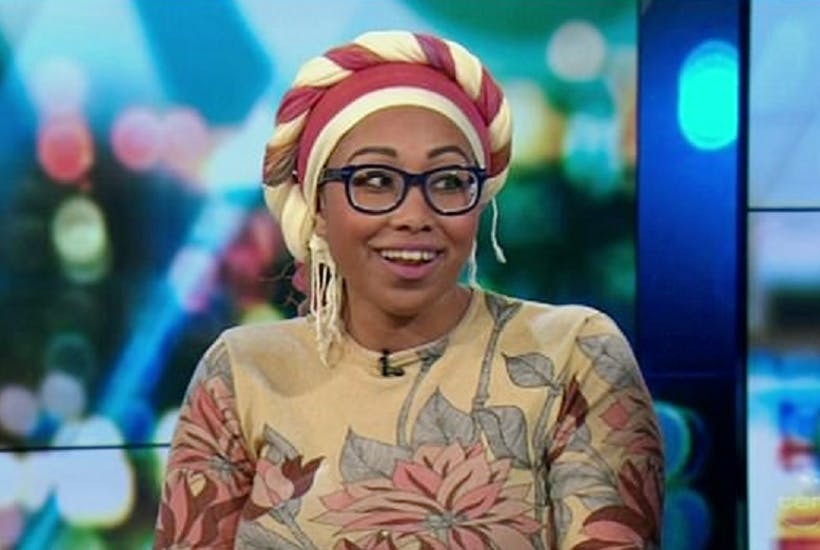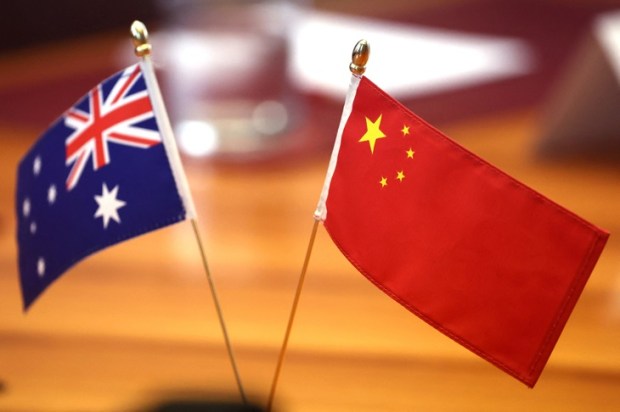The Australia Council was the creation of the Whitlam government and, in the last round of grant recipients, to the surprise of many, an awardee who has openly expressed hostility to Australian, was granted, at taxpayer’s expense, a six month residency in Paris plus a $20,000 grant.
The fortunate awardee of the Australia Council’s largesse — as revealed exclusively by The Spectator Australia — was Yassmin Abdel-Magied, who has been living overseas ever she petulantly flounced off, declaring that she was the ‘most hated person in Australia’.
Her award was the largest by both length of stay in Paris, six months, and funding, other awardees seem to have been satisfied with $5,000 and three month residencies in other Australia Council sites.
Abdel-Magied tweeted her thanks triumphantly “Hugely humbled to announced (sic) I have been awarded a six month residency at the Keesing Studio in Paris to write my next non-fiction book. AlhamdulilahX 100!!! Thank you @auscouncilarts and my good friend @ Soph-Hardcastle for encouraging me to apply.’
The Australia Council announced eight writers as recipients of international development residencies as part of its latest round of grants, with Lisa Gorton, Robert Lukins, Fiona McGregor and Sandra Thibodeaux have each been offered a three-month residency at the BR Whiting Studio in Rome plus a $10,000 grant.
Abdel-Magied has scored the longest residency and most loot, awarded a six-month residency at the Keesing Studio in Paris and with a $20,000 grant while Eloise Grills and Kate Cole-Adams were awarded three-month residencies at the Keesing Studio, receiving $10,000 each. Anita Heiss was awarded a three-month residency at the Cité Internationale des Arts and will receive $10,000.
Many wondered why Abdel-Magied, living overseas and previous comparing Australia to “an abusive boyfriend” as well as offensive comments about the relevance of Anzac Day, was awarded twice what other Australia Council recipients will receive.
Yassmin’s award was scrutinised by the media when it was announced but some questions remained unanswered. Your correspondent, one of the Spectator writers who ruminated on her award from the Australia Council, has just received a formal response from the office of Minister for Communications, Cyber Safety and the Arts, Paul Fletcher, signed by the Minister’s chief of staff.
The letter arrived after a considerable interval and a couple of phone calls from a female Canberra public servant, the unfortunate delegated to deal with media queries, each one sounding slightly more frazzled than the last.
The response from the Minister’s office, which, probably drafted from the Department’s Arts section, states:
[T]he Australia Council makes independent funding decisions guided by strong principles at arm’s length from government, which is a long standing practice and appropriate for a modern democracy. While the Government provides an overall level of funding to the Australia Council to deliver programs and initiatives, it has a high level of operational independence separate from ministerial discretion. Government does, though, have a role in setting guiding principles and expectations of the Australia Council.
It continues:
I have looked into the outcome of the Keesing Residency opportunity and can confirm that Ms Abdel-Magied has been successful in applying for a six month Keesing Residency in Paris. The value of the grant is $20,000. Ms Abdel-Magied is an Australian citizen who was selected by a competitive process assessed by her peers.
Gosh, that is reassuring to know. Selected by her peers.
The letter goes on to say:
Minister Fletcher holds the view that when the Australia Council assesses applications independent to government, it should properly balance the appropriate role of Australia’s vibrant and diverse arts ecology and artists with important considerations such as respectful and considerate attitudes towards Australian culture and history. To that end, he has shared your concerns with the Australia Council and conveyed his expectation that when the organisation makes funding decisions independent of government, it should properly balance the appropriate role of Australia’s vibrant and diverse arts sector in exploring views that may sometimes be considered controversial, with important considerations such as respect towards the views of taxpayers, who are investing in the development of an arts sector that supports Australian stories and identity.
Reading between the lines we may conclude that Australia Council chief Adrian Collette received some reproaches, as probably did the Arts section head of the Arts in the Department. It can also be assumed that the Department pulled the old ‘Your signature, just here, Minister’ in a way that would gladden Sir Humphrey’s heart.
Abdel-Magied should take full pleasure in her award from the country she has so publicly rejected, but perhaps the Australia Council’s future funding and grant processes should be examined, in these tight times, by those hard men from the Finance Department — and maybe Minister Mathias Cormann too.
Illustration: YouTube.
Got something to add? Join the discussion and comment below.
Got something to add? Join the discussion and comment below.
Get 10 issues for just $10
Subscribe to The Spectator Australia today for the next 10 magazine issues, plus full online access, for just $10.


























Comments
Don't miss out
Join the conversation with other Spectator Australia readers. Subscribe to leave a comment.
SUBSCRIBEAlready a subscriber? Log in